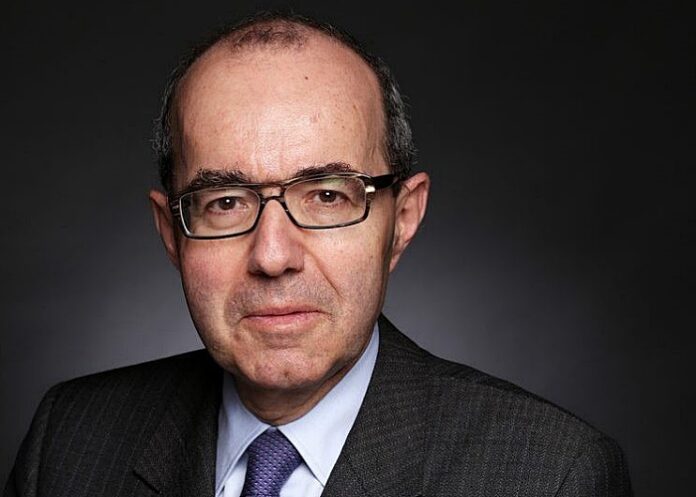It was “stunning” that the proposed Intellectual Property (IP) waiver for COVID-19 vaccines was still being debated, given that the problem had shifted from a scarcity of vaccines to a scarcity of vaccinations, according to Thomas Cueni, Director General of the International Federation of Pharmaceutical Manufacturers Associations, reports MedicalBrief.
Africa, Cueni told a media briefing, was justified in its anger over delayed supplies of vaccines that “cruelly saw the rest of the world jab their way through 2021, while they were left to wonder when the next vaccines would arrive. However, the cause of this delay had nothing to do with intellectual property restrictions.
“Vaccine nationalism and its manifestation through export bans, some vaccine projects failing while others were successful, and late funding of COVAX, robbed us of the promise of vaccine equity. These were the causes of vaccine inequity last year. And not, as many would wish you to believe, something that can be solved with a waiver on intellectual property on COVID-19 products.
Cueni said that the first quarter of 2022 had seen 13.7bn doses delivered and 11bn doses administered. “Now orders are slowing down. Countries, as well as organizations such as the Africa Centres for Disease Control are not only asking for orders to be delayed but are cancelling them.
“I find it difficult to square this picture with that which I heard presented on the international stage in the past weeks: leading voices are still calling out vaccine scarcity. I do understand the concern.
“Vaccines are not reaching all those who need them. But the cause is no longer the lack of supplies. It’s a scarcity of vaccination, not vaccines; which is due to a the lack of country readiness, absorption capacity, and the lack of resources needed to get vaccines into arms.
“We, industry, predicted this trend. And we repeat our calls that you have heard us share since May last year, that urgent steps are needed to get the vaccines to those who need them.
“But we have also seen vaccine nationalism: vaccine hoarding and export bans. And we saw a lack of initial funding for initiatives such as COVAX, needed to procure enough vaccines early to ensure equitable access.
“I understand the anger of many Africans who received the first vaccines in March 2021, but then cruelly saw the rest of the world jab their way through 2021, while they were left to wonder when the next vaccines would arrive. They did arrive, late in 2021, but the harm had been done. We do need to, and are starting to answer Africa’s calls for more self-reliance.
Vaccine nationalism and its manifestation through export bans, some vaccine projects failing while others were successful, and late funding of COVAX, robbed us of the promise of vaccine equity. These were the causes of vaccine inequity last year. And not, as many would wish you to believe, something that can be solved with a waiver on intellectual property on COVID-19 products.
“Let me be as outspoken as I have always been on this point: equity needs to be our collective focus today and for future pandemics, but I am stunned that the proposed IP waiver is still debated while supplies are far outstripping demand and some factories have been put to a halt because of missing orders. Actually, IP has never been a hindrance to scaling up vaccine manufacturing but has been an enabler of hundreds of technology transfers and other forms of voluntary licensing,” Cueni said
Multinational pharmaceutical companies have criticised the push by South Africa and India to introduce an IP waiver on COVID-19 vaccines, saying that lack of infrastructure rather than patent barriers stand in the way of Africa’s access to jabs.
This was the stance taken also by Eli Lilly CEO Dave Ricks, who said that the global pharmaceutical industry produced more than 1bn COVID-19 vaccines per month. “It is not a supply problem, or a demand problem, but a matching of the two. An IP waiver will do nothing to change that.”
The global pharmaceutical industry could develop vaccines and treatments for the pandemic at unprecedented speed thanks to the international patent framework, which gave companies confidence to invest in underlying technology that had been repurposed to tackle COVID-19, Ricks added.
BusinessLIVE noted that South Africa and India launched a campaign 18 months ago for the World Trade Organization to waive patents on COVID-19 vaccines, tests and treatments for the duration of the coronavirus pandemic, to enable large-scale production of cheap generics.
Hundreds of activists and nonprofit organisations wrote this week to President Cyril Ramaphosa and Indian Prime Minister Narendra Modi, urging them to reject a compromise deal struck in February by negotiatiors for the US, EU, India and SA that limits the waiver to COVID-19 vaccines. They said the leaked text favoured the interests of the US and EU at the expense of developing countries.
More than 100 countries initially backed the plan flighted by SA and India in October 2020. The US has since shifted its position to supporting a waiver solely for vaccines, a view shared by New Zealand and Australia. Pharmaceutical companies that hold patents on Covid-19 vaccines and treatments have opposed the proposed waiver from the outset.
Business Day Pressreader article – IP waiver ‘will not help Africa get jabs’ (Open access)
See more from MedicalBrief archives:
MSF urges governments to reject draft COVID-19 TRIPS text at WTO
WHO chief calls for Trips waiver and praises SA’s vaccine development project
Doctors Without Borders: WTO postponement underscores need for urgent action on TRIPS Waiver

